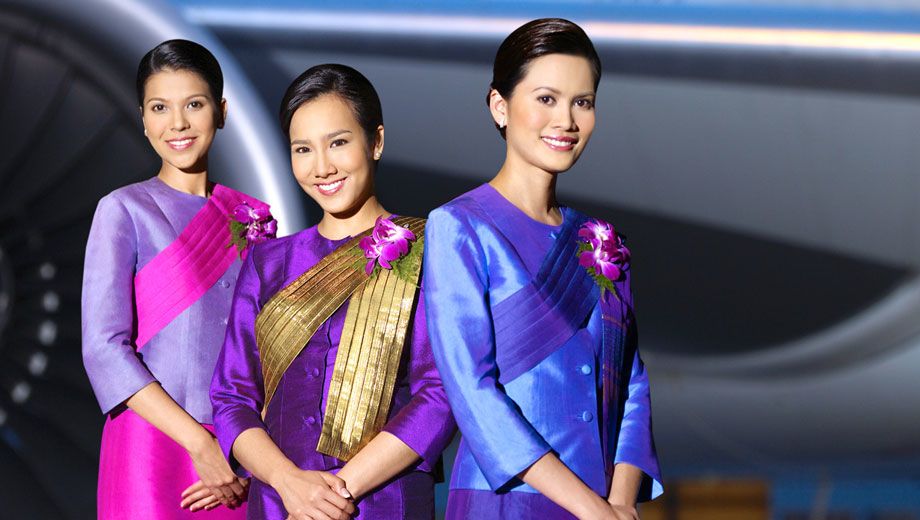Thailand’s vast economy covers banking, finance, manufacturing, electronics and more – and with Qantas, Emirates, Thai Airways and Jetstar all offering non-stop flights between Australia and Thailand, zipping up to do business is easier than ever.
But there’s more to it than merely delivering your presentation: Australian Business Traveller chats with Mei Xue Ying, Marriott International’s Director of B2B Marketing & Events for Asia Pacific, and Grahame Lynch, Bangkok-based publisher of Communications Day, to discover five simple ways to make the best impression in Thailand, close your business deal and keep your working relationships strong.
1. Age can be as important as career rank
The job title printed on somebody’s business card (which you should give and receive with two hands) is a good indicator of seniority within a company, but age is an important measure of social status in Thailand and should be considered as well: even if the oldest person in the room isn’t the most ‘senior’.
“It’s easy to give younger people more attention in a meeting where they have typically better English skills” or to focus the most attention on senior-ranked people in the room, Lynch observes, “but pains should always be taken to ensure older people in a meeting are being consulted and included.”
This rule extends to discussions had with members of your own business team in the presence of your Thai counterparts, where the older members of the group should be acknowledged and involved in the conversation, even if you outrank them on the company ladder.
2. Keep discussions formal at the beginning
While there are always exceptions, keeping your business discussions formal at the start is usually the way to go, says Mei.
“There are some people you’ll get to know really well and you can extend your discussion beyond the business relationship: that won’t normally happen the first couple of times you meet, but of course, it really depends on who you’re interacting with.”
Many Thai people are very close with their families, but whether your chats delve into partners, children and family life should be left at the discretion of the Thais you’re meeting with – if the question is asked of you, you’re free to reciprocate with less business-like questions of your own.
3. Don’t mention the King of Thailand’s passing
Even with Thailand currently observing a year of mourning following the passing of King Bhumibol Adulyadej in October 2016, it’s best not to mention the King unless your contacts bring it up: in which case, offer your condolences, and then steer the conversation elsewhere.
“The King is very well-respected by Thai people and I wouldn’t generally bring up him, or the mourning period, in any business discussion,” affirms Mei.
Lynch reinforces that “the Thai King is not your king, and ostentatious displays of sympathy look fake and trivialise something that only Thais can really innately understand.”
Read: Advice for travellers to Thailand following the death of the King
4. The rules for doing business can change at every turn
When dealing with laws and compliance issues in Thailand, many business travellers find that sometimes, rules can be taken very literally, while at other times – even for the same projects or matters – there’s much more flexibility.
“Thailand is a very bureaucratic, paperwork-based country,” Lynch explains.
“Taking constant contradictions in your stride is a good strategy for handling adversity in negotiations,” so be prepared to tackle things by-the-book, but be pleasantly surprised if a little leeway is given.
5. Choosing a restaurant? Thai, Japanese and Korean are winners
Many Thai people are very international, but if you’re in charge of choosing a place for a group outing, it’s hard to go wrong with a Thai buffet or a barbeque restaurant.
That’s especially true when you’re unfamiliar with the tastes and preferences of the Thais you’ll be meeting with, or where the group includes people of vastly different ages.
“Many Thais are less familiar with Western, Indian and Middle Eastern food and may feel uncomfortable trying it for the first time in a business or meeting context,” Lynch concludes, while Mei tips that shaking hands is the best way to greet in public, or if you’re comfortable, offer a ‘wai’.
That’s a slight bow, combined with prayer-like hands and a verbal greeting of “sawadee ka” (pronounced “swah dee car”), which you can observe en route to Thailand if flying with Thai Airways, as the cabin crew will usually perform this at the aircraft door as you step aboard.
Chris Chamberlin travelled to Thailand as a guest of Marriott International

Virgin Australia - Velocity Rewards
11 May 2017
Total posts 14
*Please note: Sawadee khrup should be used by males for greetings instead of sawadee ka.
Hi Guest, join in the discussion on Five tips for doing business in Thailand